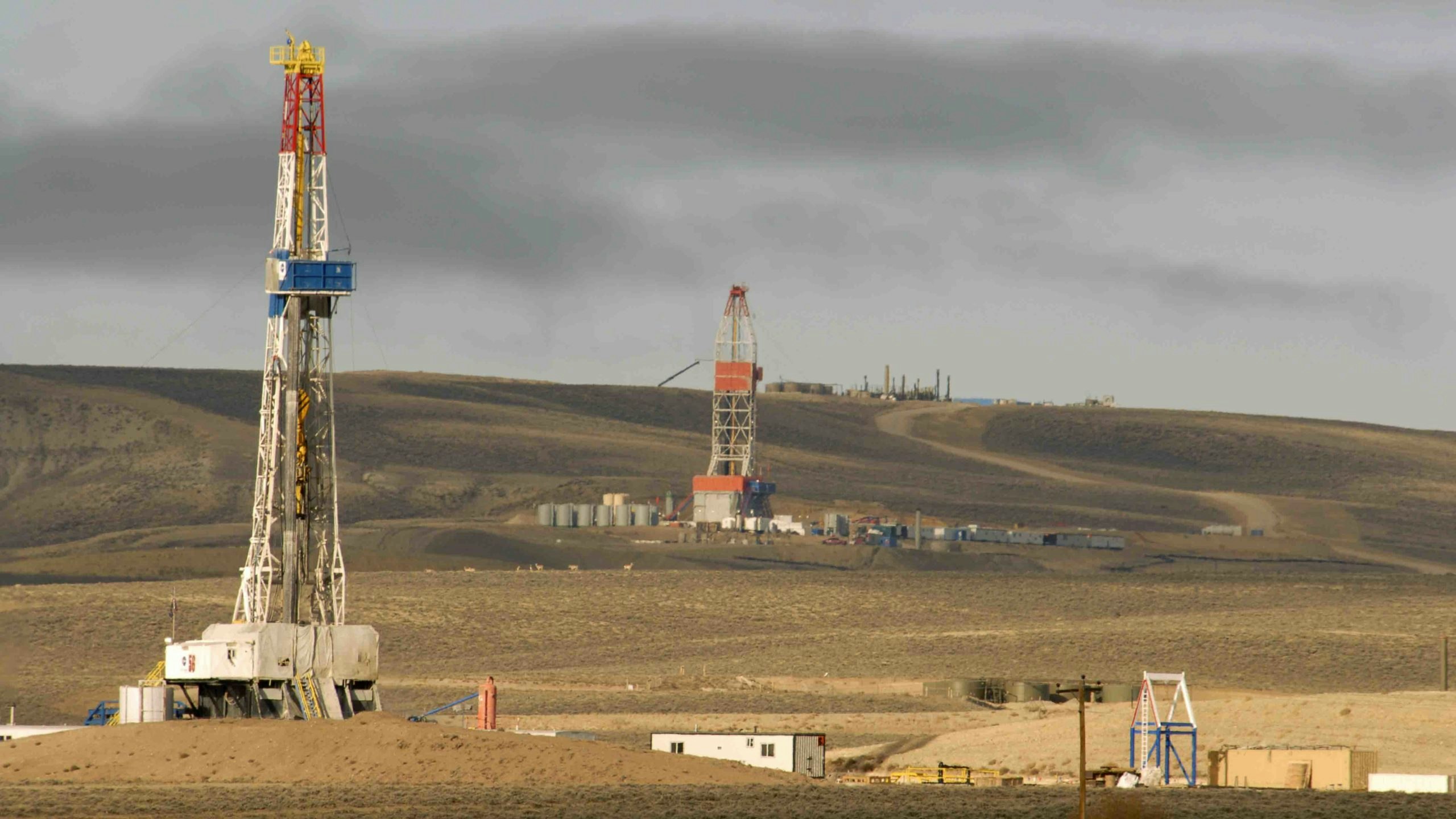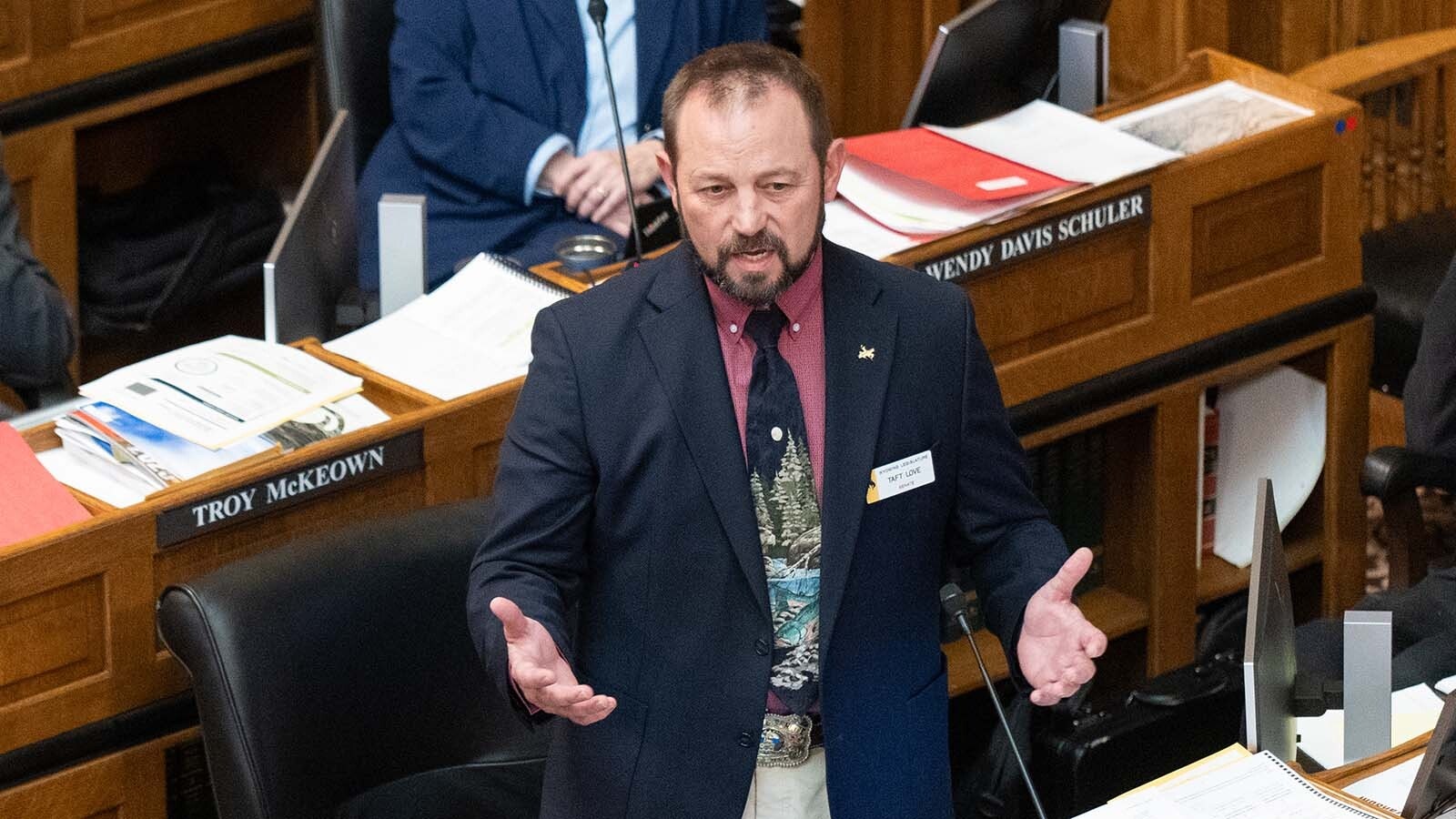The end to a moratorium on oil and gas lease sales on federal land is “promising,” even though the amount of land to be leased has been significantly reduced from original proposals, a vice president of Jonah Energy told Cowboy State Daily.
Paul Ulrich, in a position different from those taken by other industry and government officials, told Cowboy State Daily on Tuesday although the federal government has severely cut the amount of land available to lease for oil and gas production, the fact that the sales will resume again is a good start.
“We all should be pleased that we’re seeing some leases,” he said. “We should be pleased we’re seeing some proactive movement from this administration.”
Other officials in Wyoming have not been so enthusiastic about the lease sale to be held in June, noting only 144,000 acres will be made available nationally by the Interior Department for oil and gas drilling — an 80% reduction of land that had been under evaluation for leasing. Most of that land — 132,000 acres — will be available for lease in Wyoming.
The BLM assessed 733,000 acres of potential drilling sites in Alabama, Colorado, Montana, Nevada, New Mexico, North Dakota, Oklahoma, Utah and Wyoming before approving the 144,000 acres for lease sale.
In addition to the reduction in available land, the royalty rate on oil and gas produced from federal land will increase from 12.5% to 18.75%.
The Petroleum Association of Wyoming was much harsher than Ulrich in its thoughts about the reduced land available for lease and the higher royalties, saying the administration of President Joe Biden was making energy production much more expensive in a time when inflation and high gas prices are dominating the country.
“President Biden knows this isn’t the energy policy Americans want,” PAW said this week. “Otherwise he would be trumpeting these announcements himself rather than having his Secretary of Interior release a statement late in the afternoon on a holiday weekend when no one is paying attention.”
Gov. Mark Gordon and U.S. Sen. John Barrasso both criticized the limits on oil and gas leases, with Barrasso pointing specifically at Biden’s call for increased oil and gas production in the face of rising petroleum prices.
“After begging American oil and natural gas companies for months to produce more, the Biden administration is still doing all it can to restrict leasing on federal lands,” Barrasso said. “First it was an illegal moratorium imposed at the start of his presidency. Now it’s this proposal to dramatically increase the cost of onshore leases while cutting the acres offered for lease by 80 percent. The president claims he’s doing nothing to limit domestic production, but once again his administration is making American energy more expensive and harder to produce.”
But Ulrich said the simple act of resuming oil and gas lease sales shows the Biden administration understands that public lands can play a “very” critical role in providing a nation’s energy resources.
“I’m also hopeful that this administration recognizes that Wyoming, in particular, can provide some of the cleanest energy in the country, if not the world,” he said. “Operators and Wyoming state agencies, especially the Department of Environmental Quality, have done an outstanding job in reducing our overall methane impacts through both regulatory and voluntary efforts.”
The sale inventory was welcomed by the Powder River Basin Resource Council, which said it appreciated the U.S. Interior Department’s efforts to adjust the program and that the agency was finally beginning to modernize policies of “great importance” to the nation’s economic and social future.
“It’s high time to halt the underpriced giveaway of federal lands and mineral resources and reframe leasing to better serve American taxpayers, state treasuries, public land users, and the millions of citizens suffering accelerating harm from climate change,” the organization said. “For years we have advocated that federal royalty rates should be raised to more closely match those charged by private landowners, and are glad Interior has finally done so after a century of stagnation.
“The energy world is changing, and time is running out to support states and communities that have nurtured the oil and gas industry for decades. Increased royalty rates will help ensure they get their due before the inevitable decline,” PBRC continued.





